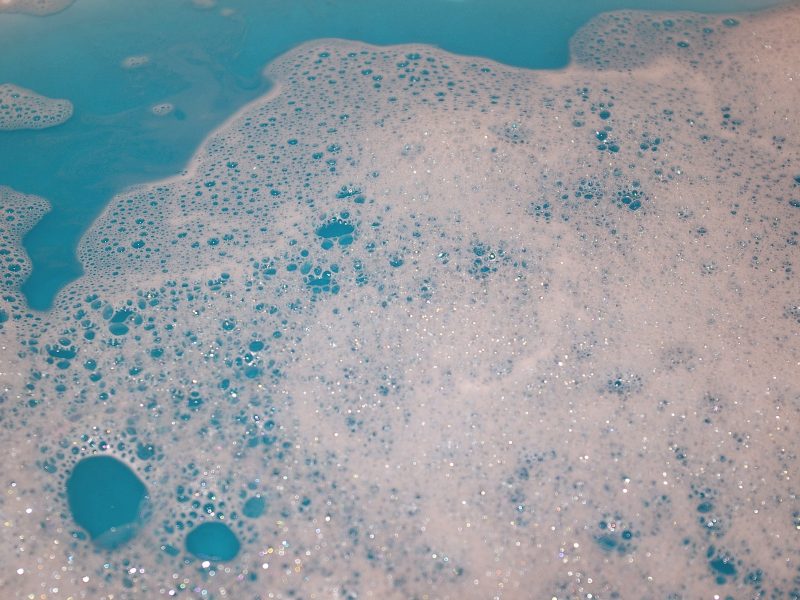Choosing the Right Defoamers for Your Industry Needs
Choosing the Right Defoamers for Your Industry Needs
Blog Article
The Function of Defoamers in Enhancing Item Top Quality and Efficiency
Defoamers offer as essential additives that alleviate this issue, ensuring smoother production process while boosting the functional and visual features of the last products. The selection of the proper defoamer can be crucial to attaining ideal results, raising essential concerns concerning solution compatibility and performance metrics that merit more expedition.
Recognizing Defoamers
Understanding the duty of defoamers is important for preserving product quality across different markets. Defoamers are chemical ingredients created to avoid the formation and reduce of foam in liquid systems, which can adversely impact processes such as mixing, filling, and surface area stress. Foaming can lead to inefficiencies, item issues, and endangered visual allure, making defoamers a critical part in making procedures.
In industrial applications, defoamers aid to improve item consistency and security. The efficient usage of defoamers not only makes certain smoother production procedures but also adds to superior item performance.
Moreover, the selection and formula of a defoamer must straighten with specific application demands, such as compatibility with other components, effectiveness under varying temperature level and pH problems, and prospective regulative restraints. Ultimately, comprehending defoamers' functions and their importance in different solutions is vital for optimizing manufacturing and making certain the finest quality final result.
Sorts Of Defoamers
Defoamers can be classified into a number of kinds based upon their composition and mechanism of action. The key kinds consist of silicone-based, non-silicone organic, and not natural defoamers.
Silicone-based defoamers are among one of the most effective, mostly as a result of their capability to spread rapidly on the liquid surface area and interfere with foam formation. Their special chemical framework permits for exceptional stability, making them ideal for high-temperature applications and environments with varying pH levels.
Non-silicone organic defoamers, commonly made up of fatty acids or natural oils, are valued for their biodegradability and lower toxicity. These are normally utilized in food and beverage applications where security and environmental effect are critical.
Inorganic defoamers, which include substances like talc or calcium carbonate, act by increasing the density of the fluid, consequently minimizing foam security. They are commonly used in industrial processes where compatibility with various other products is not a worry.
Each sort of defoamer has unique advantages and constraints, enabling tailored solutions depending upon the particular lathering concerns come across in different applications. Recognizing these distinctions is vital for enhancing performance and accomplishing preferred product quality.
Applications Across Industries
Countless industries leverage defoamers to boost product high quality and functional performance. In the food and drink sector, defoamers are vital in procedures such as brewing and dairy products production to avoid foam development, which can cause ineffectiveness and product variance. By regulating foam, makers can make sure better return and a more consistent product.
In the pharmaceutical market, defoamers play a crucial role in the formula of fluid medicines, where excessive foam can impede blending and accurate application. Their use assists maintain the honesty of the formulas and facilitates smoother manufacturing procedures.
The paint and coatings industry likewise depends on defoamers to enhance the efficiency of products throughout application. By reducing foam, these ingredients ensure a smoother surface and boost the aesthetic qualities of the end product.

Advantages of Using Defoamers
While the application of defoamers varies across industries, their advantages consistently enhance product quality and process performance. One substantial benefit is the decrease of foam formation during manufacturing procedures, which can or else lead to production delays and inconsistencies in item top quality. By decreasing foam, defoamers make it possible for a smoother circulation of products, assisting in much more efficient operations and great post to read reducing the chance of devices malfunctions.
Furthermore, the use of defoamers can enhance the look and texture of last products. In industries such as coverings, paints, and food processing, too much foam can jeopardize the aesthetic aesthetics and total high quality, while the appropriate defoamer application makes certain an uniform coating and preferable characteristics. In addition, defoamers can add to set you back financial savings by decreasing waste throughout production and maximizing the use of raw products (defoamers).

Selecting the Right Defoamer
Selecting the best defoamer is important for enhancing production processes and ensuring product quality. The selection of defoamer affects not just the efficiency of foam control but also the overall performance features of the end product. Aspects to think about consist of the sort of application, the chemistry of the solution, and the ecological conditions under which the product will be made use of.
Various sectors might require specific defoamer kinds, such as silicone-based, natural, or polymeric defoamers. Comprehending the compatibility of the defoamer with the main ingredients is vital to avoid adverse reactions that could endanger product integrity. In addition, the defoamer's efficiency in different temperatures and pH degrees need to be examined to guarantee consistent performance.
Evaluating the defoamer in small applications can offer beneficial insights right into its performance and viability. Consideration of governing explanation compliance, particularly in food, pharmaceuticals, and cosmetics, is vital in selecting a defoamer. Eventually, a comprehensive analysis of these elements will certainly result in the option of a defoamer that not just controls foam successfully but additionally enhances the high quality and efficiency of the last product.
Final Thought

Finally, defoamers are vital ingredients that dramatically improve product top quality and efficiency throughout various industries. By efficiently minimizing foam development, these agents not only enhance operational efficiency however likewise add to the useful and visual honesty of products. The calculated choice and application of defoamers lead to cost savings, maximized resource use, and enhanced client fulfillment. On the whole, the relevance of defoamers in commercial processes can not be overstated, as they play a vital duty in attaining constant and high-grade end results.
Lathering can lead to inefficiencies, item flaws, and jeopardized visual appeal, discover here making defoamers a vital component in making operations.

Report this page